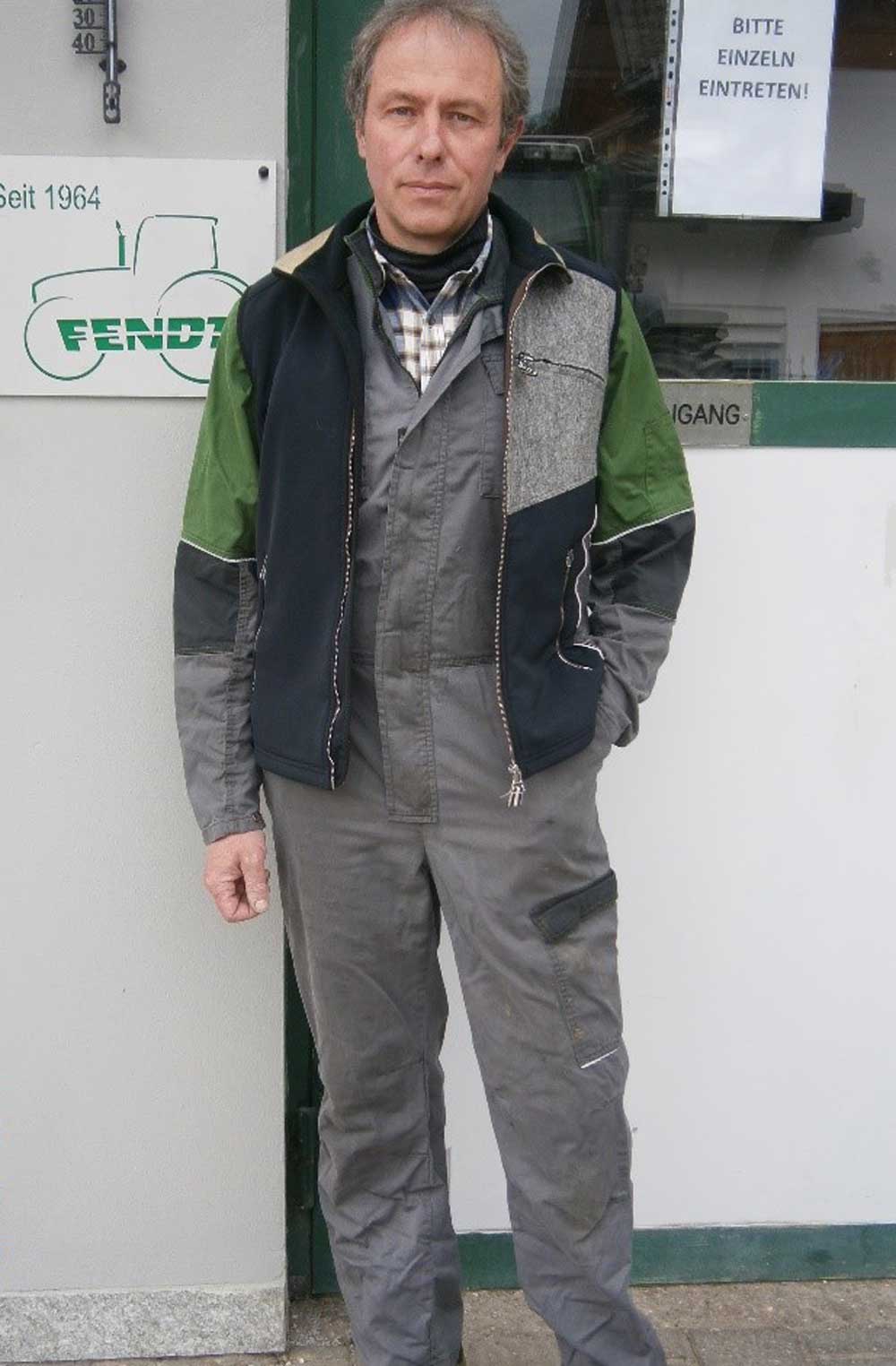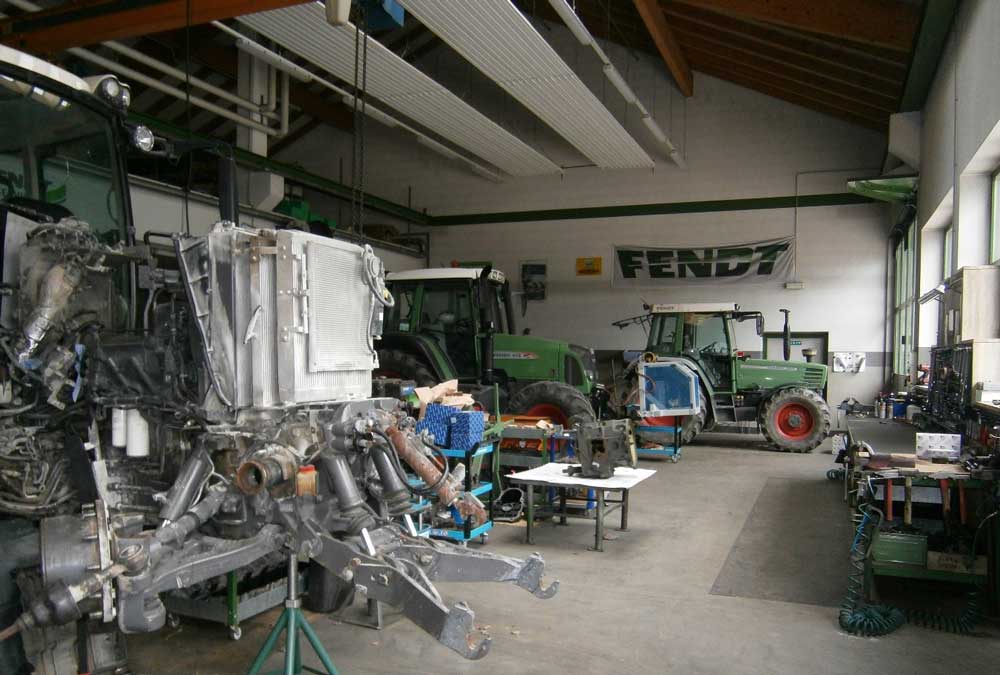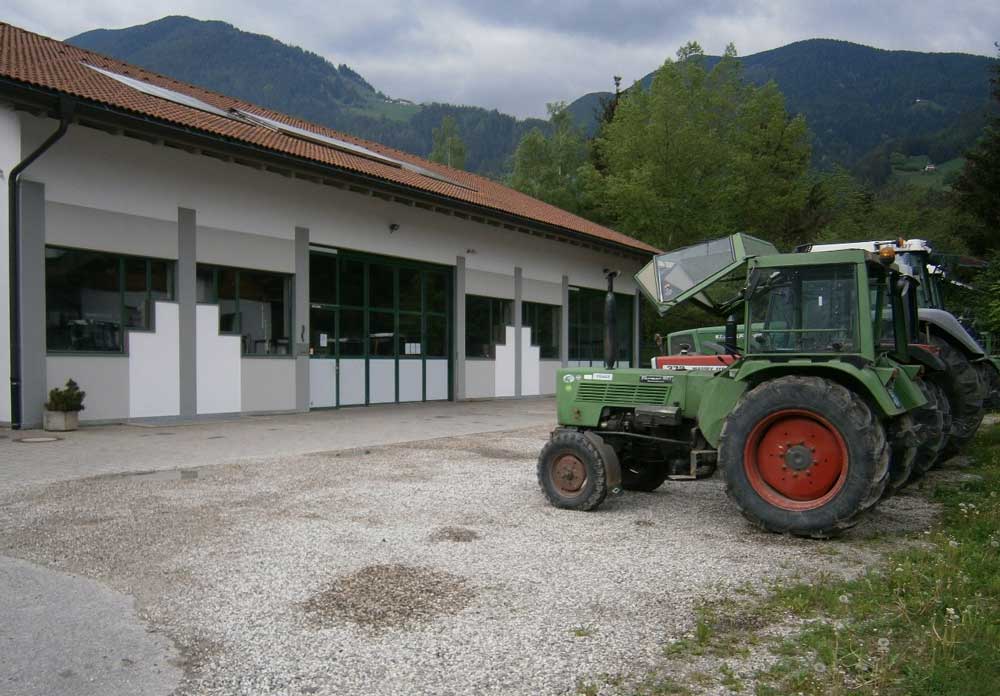Günther Griessmair: New perspectives for farming being created!
By Erminia Ciarleglio, DLG
The Italian province of South Tyrol is home to farm machinery repair specialist Günther Griessmair. He represents the second generation heading the family firm that focusses on repairing agricultural machinery, particularly Fendt tractors and equipment. In fact, up to 95 % of the business is dedicated to keeping the German-made models from Marktoberdorf in top working condition. Among the many additional services offered to the farming community by the Griessmair concern is tyre supply and changing, the servicing of pto and drive shafts and machinery performance testing. Main enterprise among the full-time farmers that represent most customers is pasture-based livestock production, although a few businesses focus on potato growing or fruit production. Such a wide client base means it’s crucial to remain up-to-date with the latest developments in agriculture. Günther Griessmair finds an ideal way of »Keeping an eye on what’s happening over the edge of my own plate«, is through the monthly DLG-Mitteilungen magazine. »I’ve been a DLG member since 2012 and also value the DLG test reports and naturally all the events organised for DLG members«.
1. Günther Griessmair, you don’t sell new machinery. Instead, your business concentrates on servicing, maintenance and repairs. Why?
Well, for one thing there is already a very good dealership in the district with which we have worked together for decades now, our relationship over the years has become much more than merely commercial. Also, the business approach we’ve taken leaves us free to concentrate completely on servicing. We don’t have to bother ourselves with used tractor sales and marketing, for instance.
2. The major manufacturers or »global players« demand ever-increasing exclusivity from their dealerships/distributors. How do you see your own business in this context?
It’s been certainly many years since our enterprise established its »one brand strategy« and we have progressed with this very well. Market share for this maker in our region is around 50 percent and involves the care of a great deal more than 1000 tractors, which keeps our workshop more than fully engaged. A small company such as ours can’t really handle working with a number of manufacturers: We simply do not have the capacity. If we tried, the quality of our present service could suffer.
3. How do you see your prospects in the medium and longer term? Can you see your firm being able to meet the increasingly demanding requirements of customers?
I’m convinced that agriculture itself will play an increasingly important role in the future and that our customers will continue in production. Naturally, farm structures have greatly changed in recent years and the farmers involved require even more in terms of service. It’s natural nowadays that our staff members must undergo regular schooling and training so that they remain »fit« for working with the products we support. We also invest a great deal in suitable equipment for our workshop. But we look to the future with great confidence because of our strategy of mainly servicing a single make of machinery. A brand alongside which our company has grown and developed continually.
4. Finding new young employees and, above all, persuading them to remain and see themselves as part of a company, is an increasingly worrying theme, especially with skilled crafts. How to you see the situation in your sector?
Finding new team members – i.e. apprentices and trainees – was much more difficult for us in past years. Now, we find many young people have more enthusiasm, especially for agricultural engineering. And since a laptop has now become a part of job equipment, just as a toolbox has always been, the image of this career has greatly changed. Basically, many school leavers now see that an apprenticeship is not at all a bad thing.
The bonding of employees with their respective company is admittedly a little more difficult. In this respect, everything has to be just right, and this is now certainly a process where everyone involved has a right of discussion. In that our work involves substantial seasonal fluctuations, our team members must be flexible regarding working hours. On the other hand, such flexibility has naturally to be paid for.
5. Italy has been badly hit by the »Covid 19« pandemic. How has this affected your business? And has the situation led to changes in your region’s farming industry?
»Covid 19« has had a substantial effect on the Italian economy and we’ll probably have to deal with the aftermath for many a year yet. Compared with other industry sectors, farming has got off quite lightly. Many farm businesses have involved themselves more in direct marketing and in this way created new perspectives for the future. In fact, we’ve heard a few individuals voicing the opinion that this pandemic can definitely also be seen as an opportunity for introducing new ideas.
Our business managed to continue its usual work while at the same time obeying the introduced hygiene regulations. This has allowed us to overcome the »corona« crisis very well so far.





